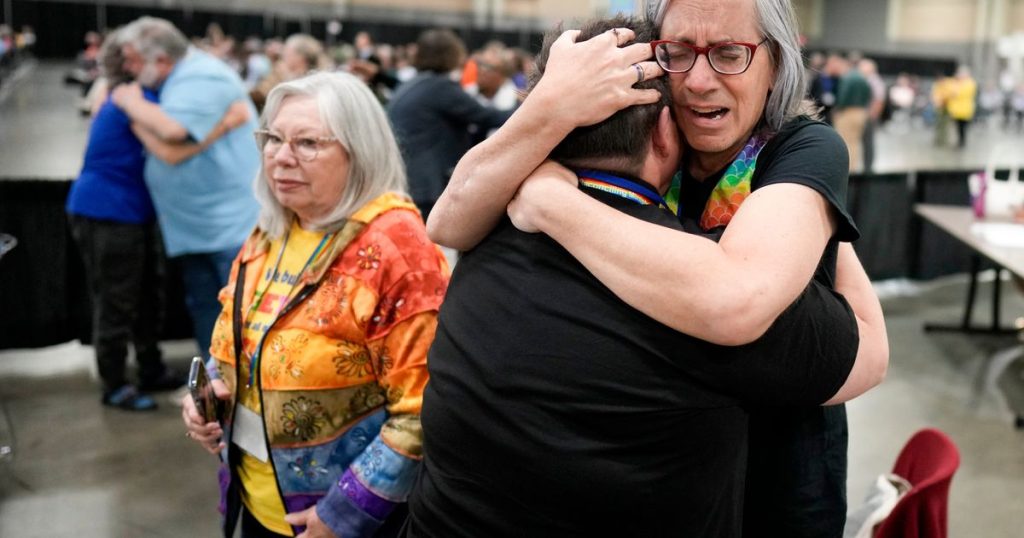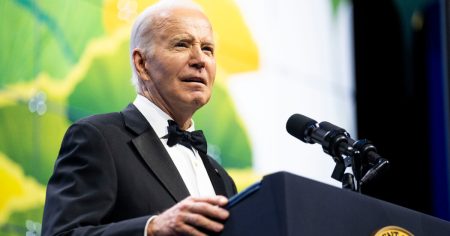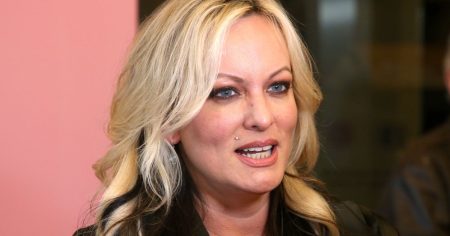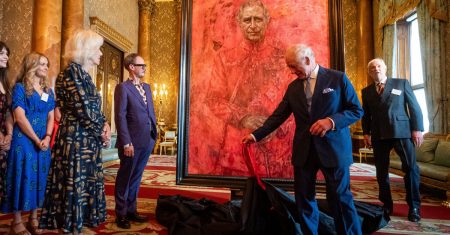United Methodist delegates voted 692-51 at their General Conference to repeal their church’s longstanding ban on LGBTQ clergy with no debate, removing the rule forbidding “self-avowed practicing homosexuals” from being ordained or appointed as ministers. The change came after years of controversy, with past General Conferences reinforcing the ban despite protests. Many conservatives who supported the ban have left the denomination, leading to this move in a progressive direction. The change does not affirm LGBTQ clergy explicitly but means the church no longer forbids them, with the measure mainly impacting U.S. churches.
Bishop Karen Oliveto, the first openly lesbian bishop in the United Methodist Church, described the vote as carrying immense significance. The measure approved also prevents district superintendents from penalizing clergy for performing or not performing same-sex weddings, removing existing bans on LGBTQ candidates for ministry and funding gay-friendly ministries. The changes follow decades of debate at General Conferences, which have traditionally occurred every four years. LGBTQ advocates gathered outside the Charlotte Convention Center to celebrate the vote, highlighting the impact on individuals like Angie Cox from Ohio, who hopes to live fully into her calling.
The departure of over 7,600 American congregations, a quarter of all UMC congregations in the U.S., between 2019 and 2023 reflects conservative discontent over the denomination not enforcing its bans on same-sex marriage and LGBTQ ordination. The conference decided to formally close the window that allowed congregations to disaffiliate under favorable terms, over the objections of conservatives seeking an extension. There is concern about potential departures of some international churches, particularly in Africa, where more conservative sexual values prevail and same-sex activity is criminalized in some countries. Last week, the conference endorsed a regionalization plan allowing U.S. churches autonomy in LGBTQ issues.
The historic vote was a landmark moment for the United Methodist Church, marking a significant shift on LGBTQ issues. The church’s 1972 stance declaring homosexuality as “incompatible with Christian teaching” was revised to remove that phrase as well. The repeal of the ban on LGBTQ clergy set the stage for future changes within the denomination, despite the anticipated drop in U.S. membership post-2023 departures. The denomination’s international branches, especially in Africa, pose potential challenges given differing views on LGBTQ rights and same-sex marriage.
The global implications of these decisions highlight the evolving nature of the church’s stance on LGBTQ issues. The revised Social Principles reflect a more inclusive and progressive approach, opening doors for LGBTQ clergy and same-sex weddings in the United States. The autonomy granted to U.S. churches through regionalization may lead to further shifts in policy and practice. While some seek peaceful coexistence amid differing views, others believe the departures and disaffiliations have damaged congregations and families. The ongoing debate surrounding LGBTQ inclusion underscores the complexities and divisions within the United Methodist Church as it navigates these changes.















